Of all the weighty theological and philosophical concepts that humanity has wrestled with throughout history, there is perhaps none more overwhelming than that of eternity. Living with an awareness of the inevitability of death is enough to send one into a perpetual state of panic; add to that the possibility of everlasting life or damnation, and daily existence quickly becomes too much to bear. Think about it: eternity means forever. Imagine the joy and peace that must flow from experiencing perfect fellowship with God for all eternity. Imagine the unspeakable agony of eternal suffering outside of the presence of God. Now, if you will, imagine dying, waking up in heaven, and quickly recognizing that you were placed there by mistake. You are being addressed by your name, but as you are informed of all of the good deeds that earned you a spot in paradise, you realize that Whoever is in charge clearly thinks you are someone else. This is the quandary in which Eleanor Shellstrop finds herself in the pilot episode of NBC’s The Good Place.
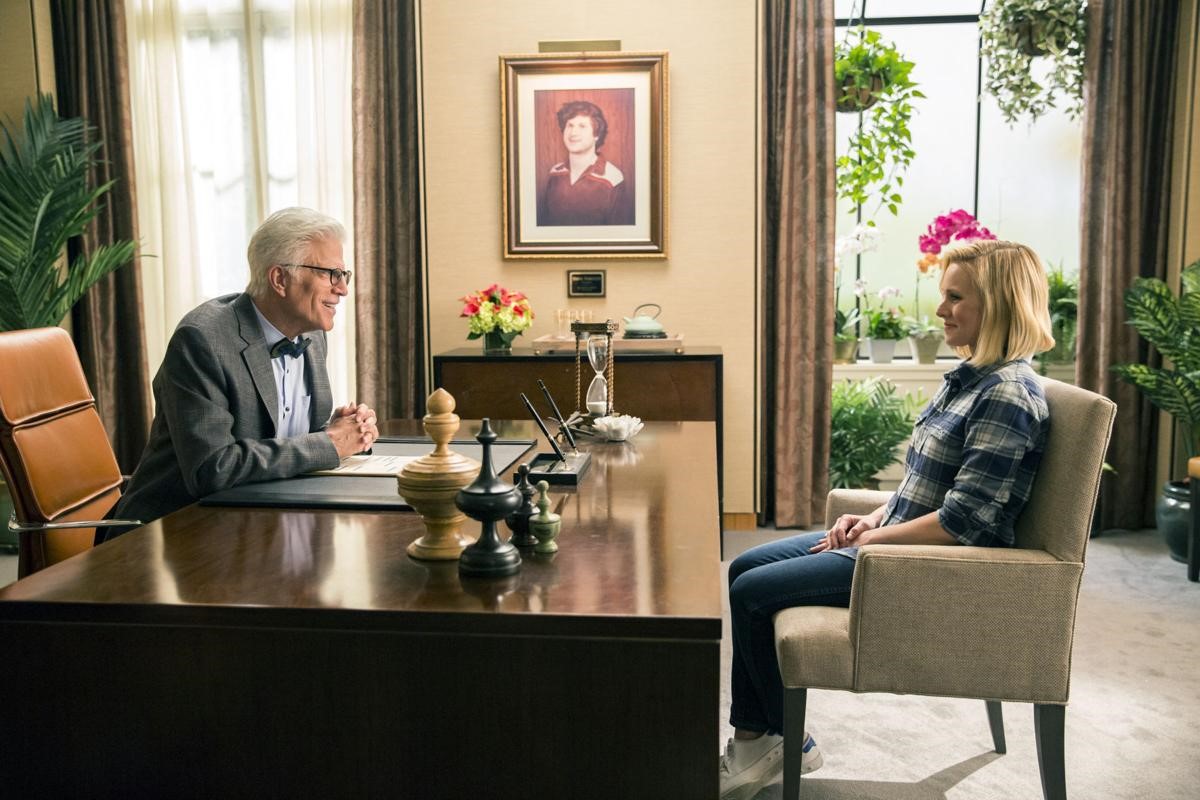
A self-proclaimed “Arizona dirtbag,” Eleanor lived her earthly life, as many do, focused entirely on herself. She sold counterfeit drugs to the sick and elderly, manipulated dozens of boyfriends, and was generally just not the kind of person anyone would ever want to hang out with. So now that she has found herself in The Good Place under the most unusual of circumstances, she has some tough decisions to make. Should she come clean about her identity and risk going to The Bad Place? Cross her fingers and try to remain as inconspicuous as possible for all eternity? What if this is all a test, and by being dishonest, she is only bringing further condemnation on herself? Or, what if she were to put in the effort to become a better person, thus rightfully earning her position in The Good Place? With the help of three trusted friends she makes along the way, she ultimately decides that this is her best option.
SPOILERS AHEAD.
DO NOT CONTINUE READING IF YOU HAVE NOT SEEN SEASON 1 OF THE GOOD PLACE IN ITS ENTIRETY.
Eleanor’s closest companion is her afterlife-assigned soulmate, moral philosophy professor Chidi Anagonye. Chidi is, by all accounts, a good person who devoted his entire life to studying ethics and morality, seemingly making him the perfect candidate to help Eleanor become “good.” After anxiously pondering the morality of the situation from every possible angle, he reluctantly agrees to teach her everything he knows about ethics and support her in her journey toward righteousness. Interestingly enough, however, Eleanor isn’t the only person in desperate need of his class: Jason Mendoza, a dimwitted, drug-dealing DJ from Florida, is mistaken for a Taiwanese monk named Jianyu Li, and agrees to make an attempt at self-improvement, or at least self-preservation. Naturally, as the season unfolds, Jason’s soulmate Tahani Al-Jamil—a charming and dignified philanthropist—becomes aware of everything. Despite her understandable frustration, she too agrees to help Eleanor and Jason. And so our crew of lovable misfits is assembled.
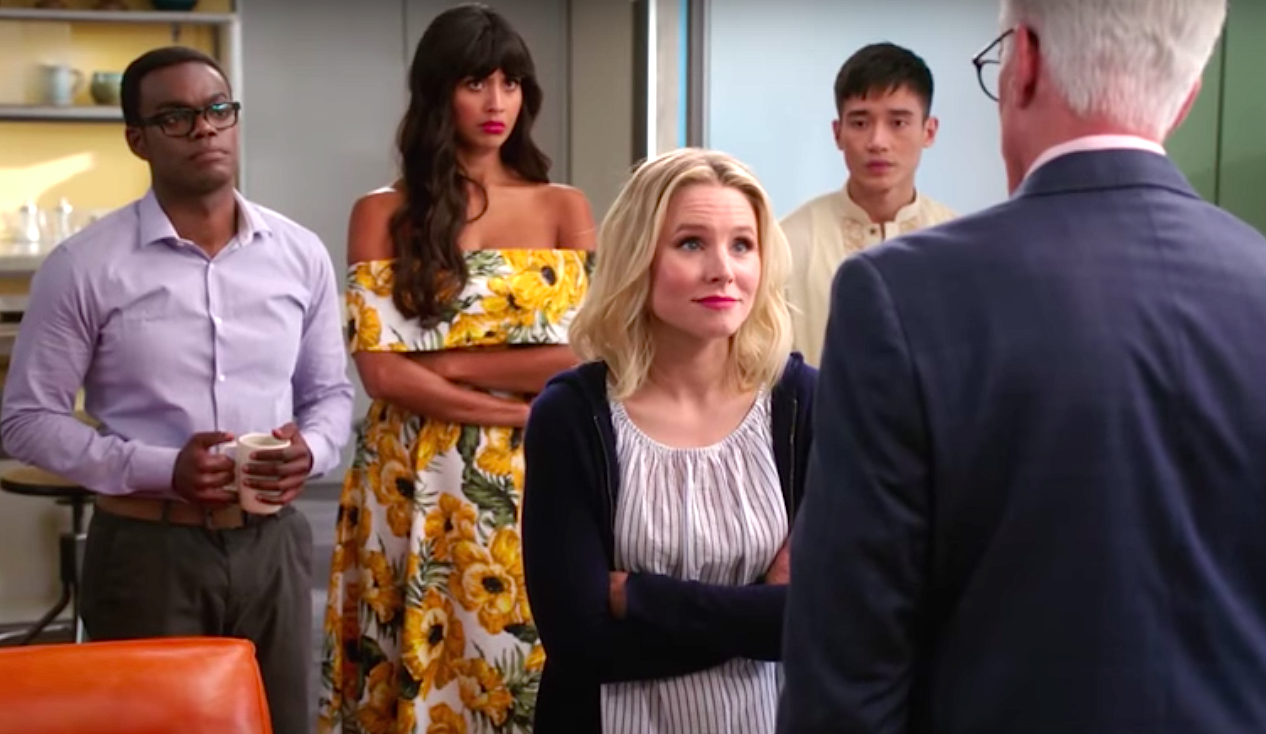
As I watch this season, I am struck by the hopelessness that pervades all attempts at earning one’s own salvation. It doesn’t matter that Eleanor works tirelessly to serve others and perform random acts of kindness; all of her good deeds fall short due to her selfish motives. Regardless of the things she does on the outside, her heart is still corrupted by sin. There is literally nothing she or Jason could do to earn their place. Although The Good Place doesn’t attempt to line up with biblical theology, it forces me to step back and praise God for his grace. If my salvation were up to me, I would be utterly doomed. What a relief it is to be in Jesus! One day, I will enter into the presence of God based solely on the merits of Christ, and unlike Eleanor and Jason, I won’t have to worry about securing my position or getting kicked out. Even today, although I have all the same selfish tendencies as these characters, I am able to approach the throne of grace with confidence and receive God’s mercy, all because Jesus suffered in my place and gave me his righteousness. He is the ultimate remedy to those eternity-induced panic attacks I mentioned earlier.
Humanity’s inability to save itself is further highlighted in the truly exhilarating twist at the end of the season, which reveals that Chidi and Tahani are just as lost as the other two– the supposed Good Place was The Bad Place all along! In a bold storytelling move inspired by Jean-Paul Sartre’s No Exit, showrunner Michael Schur flips the phrase “hell is other people” on its head. Michael, the demon responsible for designing this afterlife scenario, posed as an angel and orchestrated every detail of the neighborhood in order to make these four humans unwittingly torture each other simply by coexisting. What he did not foresee—and this is where the show’s worldview becomes more explicitly humanistic—was the possibility of the humans actually helping each other. Sure, they fought and bickered constantly and spent a great deal of time agonizing over moral dilemmas, but at the end of the day, they were willing to put aside their own interests in order to help each other. In doing so, they are able to demonstrate the power of love, which brings the unlikeliest of people together and conquers the most despicable manifestations of hatred.
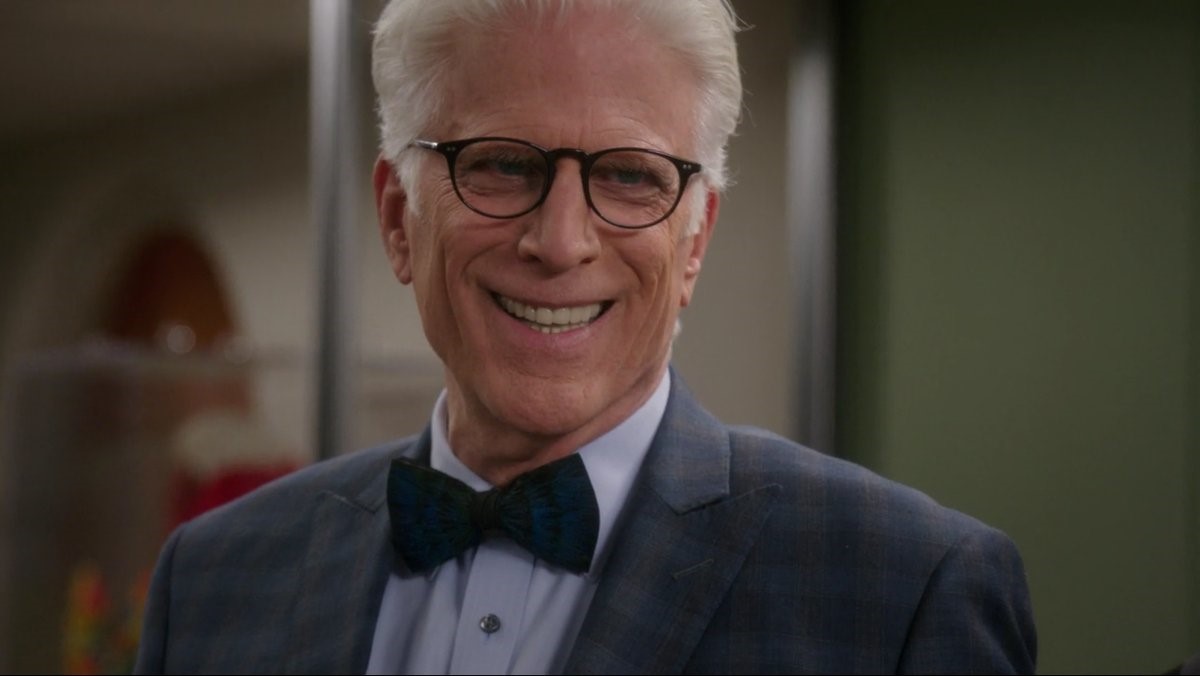
The Good Place is a feel-good, life-affirming show that feels all too necessary in 2018. No, it is not the Gospel. The “good” and “bad” places are not the same as the heaven and hell described in the Bible. But it does encourage us as viewers—and as human beings—to deny ourselves and love our neighbors for as long as we live. That idea is more radical than it sounds. In an era characterized almost exclusively by extreme cynicism, anger, and division, the world is in desperate need of people who are willing to display empathy and compassion to people who are different from them. Eleanor, Chidi, Jason, and Tahani, in all their brokenness, exemplify the kind of love that humans are capable of showing. As we navigate through the banality and chaos of everyday life and prepare for eternity in perfect harmony with God, may we all strive to demonstrate sacrificial love to our fellow image-bearers.
• • •
Welcome! Everything is fine.
This is the first article in our ongoing series about The Good Place. When we’ve caught up with the show, you’ll begin seeing articles about each episode as they are aired. Make sure you’re subscribed to the Reel World Theology page on Facebook to see every article as it’s released!
The Good Place: Season 1
Previous article#188 - Bad Times at the El Royale and the Necessity of Confession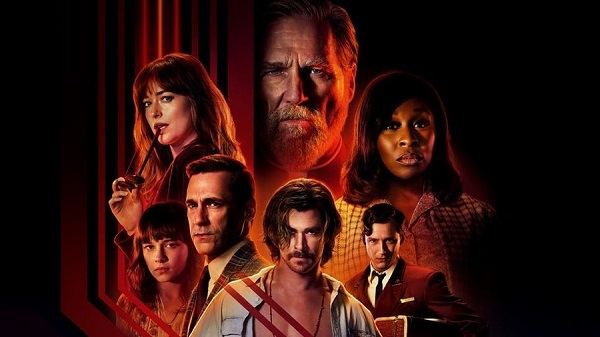 Next article Review| The Nutcracker and the Four Realms
Next article Review| The Nutcracker and the Four Realms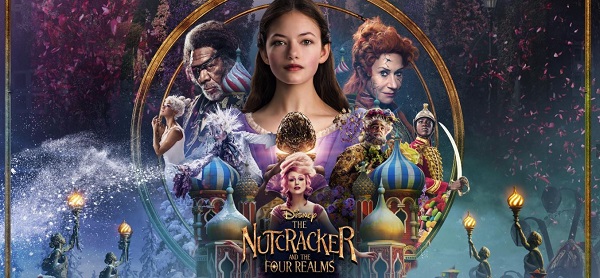
 Next article Review| The Nutcracker and the Four Realms
Next article Review| The Nutcracker and the Four Realms
